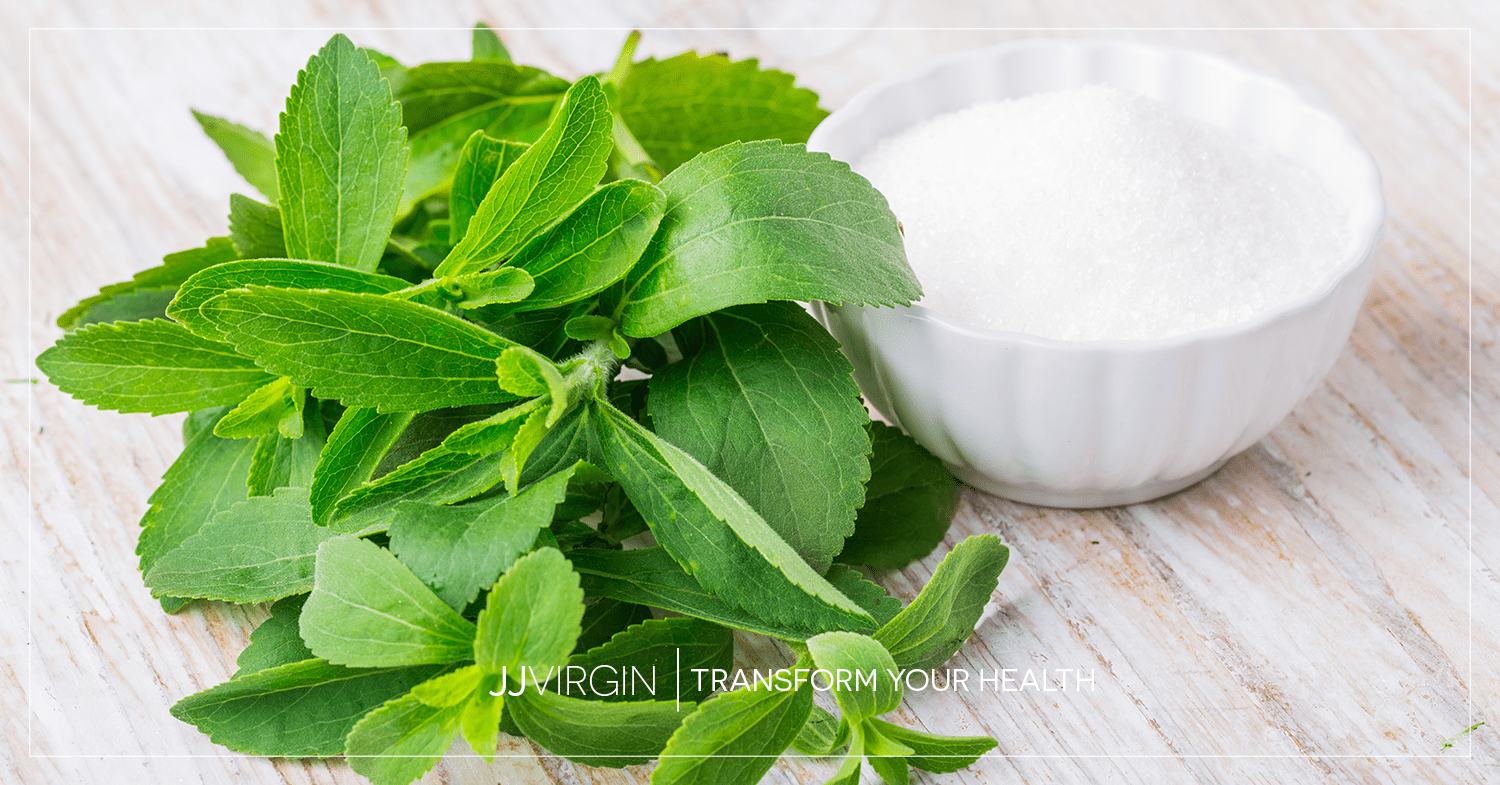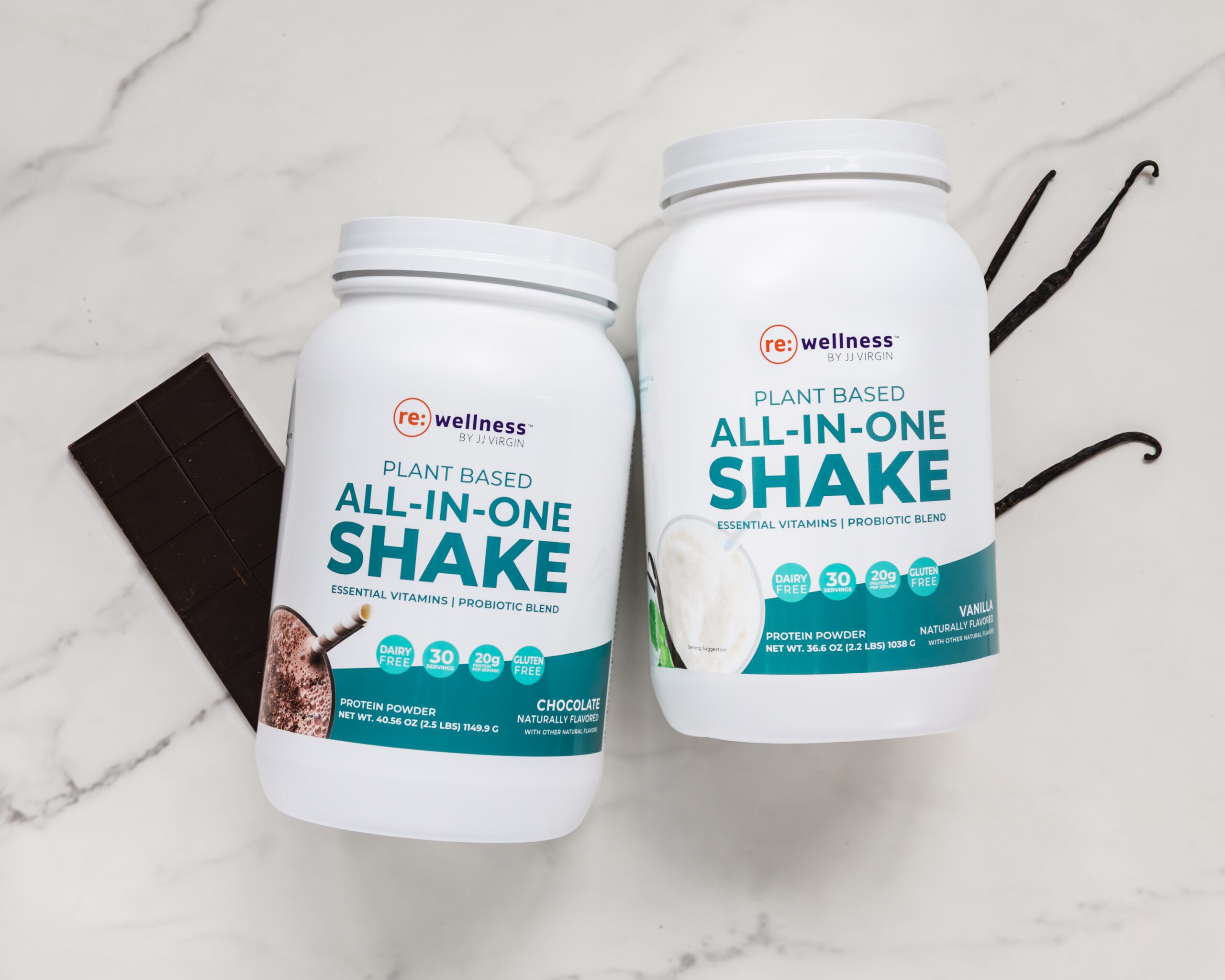I didn’t realize how terrible America’s sugar addiction really was until I wrote my NY Times bestseller The Virgin Diet.
On the Virgin Diet, you cut out the 7 foods most likely to cause food intolerances, and that includes sweeteners. Little did I know, for some people that was going to feel impossible!
In fact, I went on to write the Sugar Impact Diet because so many people struggled to cut out the sweet stuff – and not just sugars like fructose and glucose. It turns out diet soda and desserts full of artificial sweeteners are just as addictive…
Artificial Sweeteners Are Never the Answer!
Sugar has terrifying effects on your weight, energy, and inflammation levels. It puts you at increased risk for a long list of dangerous disease, including obesity, type 2 diabetes, fatty liver disease, hypertension and cardiovascular disease, autoimmune issues, and Alzheimer’s.1-4
And if you think you can just switch to Diet Coke and call it a day, forget it! Studies now prove that diet sodas full of artificial sweeteners have just as many serious consequences, including increased risk of strokes and dementia.5
So What’s Safe?
It’s obvious why smart eaters are looking for natural alternatives!
In JJ Virgin recipes and products, we use a combination of monk fruit, stevia, erythritol, and maltitol. The first two are natural sweeteners derived from plants, while the last two are sugar alcohols (also derived from plant sources, though in a different way).
We choose sugar alcohols like erythritol and maltitol because they have little impact on your blood glucose. That makes them ideal for diabetics and others who struggle with sugar cravings and trouble losing belly fat. (And if you’ve heard unsettling rumors that link sugar alcohols to cancer, check out this blog to find out the truth: Do Sugar Alcohols like Erythritol and Xylitol Cause Tumors?)
Monk fruit extract and stevia are our other sweetener choices because they can be used in very small amounts, meaning they can also achieve a sweet taste without affecting your blood sugar.
However, stevia sometimes gets a bad rap because of something called “caloric dysregulation.”
What’s the Deal with Stevia?
Caloric dysregulation is a really scientific term for a process that’s actually easy to understand.
Your body has a built-in sensor that says very sweet = lots of calories. But if you repeatedly eat something that tastes extremely sweet – in stevia’s case, we’re talking 200-300 times sweeter than table sugar – that isn’t actually high-calorie, it can break your sensor.
Suddenly, your brain thinks it’s perfectly acceptable to binge on super-sweet foods, and you can imagine why that’s a problem!
The other common, more minor complaint about stevia is that it has a bitter aftertaste on its own. (I sure think so!)
Stevia is also commonly mixed with dextrose, a sweetener made from corn, and that can bring on a whole new host of problems for those with food sensitivities or chronic inflammation.

The Good News About Stevia
So now you know all of stevia’s problems. Why the heck do we use it in our products? The answer is threefold and addresses all of the potential issues above:
A) We only use stevia in small amounts along with other natural sweeteners and sugar alcohols in order to avoid the bitter aftertaste.
B) We NEVER use corn proteins in any JJ Virgin product. No stevia mixed with cornstarch or maltodextrin here!*
C) We recommend all of our products be part of a low-sugar impact diet. That means you eliminate sugar cravings from the start and readjust your palate so that super-sweet tastes awful! If you’re only eating small amounts of stevia as part of a low-sugar impact diet, you aren’t going to fall prey to caloric dysregulation.
Do I recommend using baking substitutes packed with stevia and dextrose? Absolutely not! But you can safely eat products containing stevia in combination with other low-sugar impact sweeteners, including my All-In-One Protein Shakes. Just be sure they’re part of a low-sugar impact diet and eaten in moderation.
One last tip: if you’re not sure whether a food contains stevia, look for “stevioside” or “rebaudioside A” on the label – both are versions of stevia approved for use in foods.
This article is part of the Quick Question series, where I answer your most common questions. Have something you need answered? Follow me on Facebook or Instagram and ask away!

Article Sources:
1 http://now.tufts.edu/news-releases/sugary-drinks-linked-high-death-tolls-worldwide
2 http://ajcn.nutrition.org/content/94/2/479.short
3 http://ajcn.nutrition.org/content/86/4/899.full
4 http://www.ebiomedicine.com/article/S2352-3964(16)30143-8/abstract
5 http://stroke.ahajournals.org/content/early/2017/04/20/STROKEAHA.116.016027
*The proteins in foods are what cause reactivity. While erythritol is corn-derived, it does not contain any protein, meaning you can safely consume this sweetener without concern.







